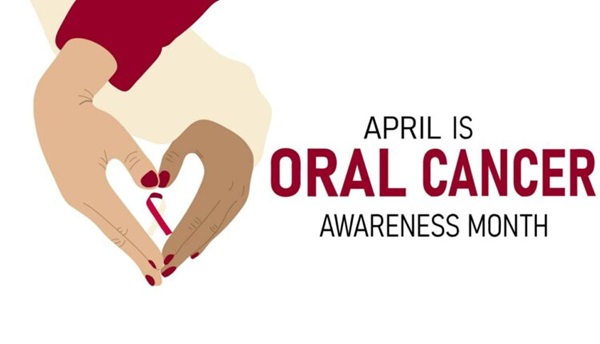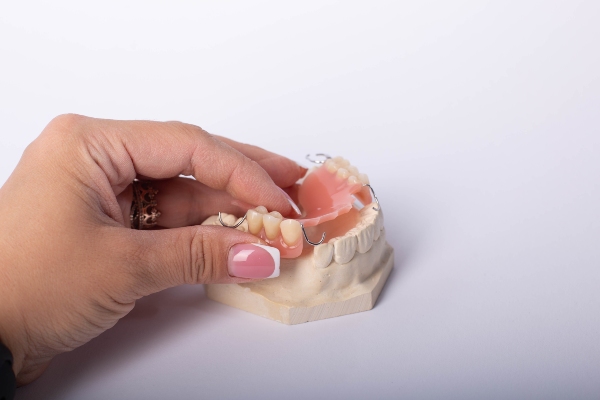 April marks Oral Cancer Awareness Month, a time dedicated to raising awareness about this often-overlooked disease. Oral cancer can affect anyone, regardless of age, gender, or lifestyle, making it essential to understand the risks and symptoms. At Sammamish Dental Center we are committed to empowering our community with early detection and prevention strategies to protect our patients' oral health. Let's shed some light on oral cancer and the steps you can take to reduce your risk.
April marks Oral Cancer Awareness Month, a time dedicated to raising awareness about this often-overlooked disease. Oral cancer can affect anyone, regardless of age, gender, or lifestyle, making it essential to understand the risks and symptoms. At Sammamish Dental Center we are committed to empowering our community with early detection and prevention strategies to protect our patients' oral health. Let's shed some light on oral cancer and the steps you can take to reduce your risk.
Understanding Oral Cancer:
'Oral cancer' refers to cancer that develops in any part of the mouth, including the lips, tongue, cheeks, floor of the mouth, hard and soft palate, sinuses, throat (pharynx), and voice box (larynx).
Signs and Symptoms:
Knowing the signs and symptoms of oral cancer can facilitate early detection. Common indicators include:
- Persistent mouth sores that do not heal
- Red or white patches in the mouth
- Unexplained bleeding in the mouth
- Persistent sore throat or hoarseness
- Difficulty chewing, swallowing, or speaking
- Swelling or lumps in the mouth or neck
- Thickening in the cheek or neck
- Numbness or pain the mouth or lips
- Changes in the fit of dentures or oral appliances
If you experience any of these symptoms for more than two weeks, it's essential to see your dentist or healthcare provider for a thorough evaluation.
Early Detection is crucial for successful treatment of oral cancer. Unfortunately, oral cancer often goes unnoticed in its early stages, leading to delayed diagnosis and more advanced disease. That's why oral cancer screenings are vital, especially for individuals at higher risk.
Risk Factors:
While anyone can develop oral cancer, certain factors may increase your risk, including:
- Tobacco use: Smoking cigarettes, cigars, pipes, vaping, or using smokeless tobacco significantly increases the risk of developing oral cancer.
- Heavy alcohol use: Excessive alcohol consumption, especially when combined with tobacco use, raises the risk of oral cancer.
- HPV infection: certain strains of the human papillomavirus (HPV) have been linked to an increased risk of oral cancer.
- Sub exposure: Prolonged exposure to sunlight increases the risk of lip cancer.
- Poor oral hygiene: Neglecting oral hygiene practices may contribute to the development of oral cancer.
- Family history: A family history of oral cancer may increase the risk.
Prevention:
While certain risk factors such as genetics cannot be changed, there are proactive steps you can take to reduce your risk of oral cancer.
- Quit tobacco: If you smoke, vape, or use tobacco products, quitting is the single most effective way to reduce your risk of oral cancer.
- Limit alcohol consumption: Moderating your alcohol intake can help lower your risk of oral cancer.
- Practice sun safety: Wear lip balm with SPF, wear hats, and seek shade to protect against lip cancer.
- Maintain good oral hygiene: Brush and floss daily. Visit your dentist for regular check-ups and cleanings. Oral cancer screenings are part of your regular dental exams.
- Get vaccinated: HPV vaccination can reduce the risk of oral cancer associated with certain HPV strains.
- Maintain a healthy diet: Eating a balanced diet rich in fruits and vegetables that are high in antioxidants and vitamins can boost your immune system and protect against cancerous cell growth.
- Know the signs: Be vigilant about any changes or abnormalities in your mouth, lips, and throat including sores, lumps, and persistent discomfort. Seek prompt medical attention if you notice anything unusual.
As we observe Oral Cancer Awareness Month, let's commit to prioritizing our oral health and being proactive about oral cancer prevention and detection. By understanding the risks, signs and symptoms, and prevention strategies, we can work towards reducing the impact of oral cancer on our communities and our loved ones.
Contact us Today!
Remember that early detection saves lives. If you notice any signs or symptoms of oral cancer or have concerns about your oral health, don't hesitate to contact us at Sammamish Dental Center. Dr. Goharkhay is committed to supporting your oral health and empowering you to take proactive choices to protect your health and well-being.
Request an appointment or call Sammamish Dental Center at (425) 340-3113 for an appointment in our Issaquah office.
Related Posts
A dental bridge is a restorative option designed to replace missing teeth, improving function and appearance. Among the various types, a cantilever dental bridge is often chosen when only one supporting tooth is available on one side of the gap. Understanding the pros and cons of cantilever dental bridges helps patients determine if this solution…
You can have a complete smile with a dental bridge. Tooth loss interrupts proper eating and speaking. This dental replacement option allows the wearer to regain proper oral function. Knowing how a dental bridge can bring back your oral functionality can motivate you to set an appointment with your dentist soon.It can be challenging to…
A dental bridge is an effective solution for replacing missing teeth and restoring function and appearance. When considering a dental bridge, patients often encounter two main options: traditional and Maryland bridges. Understanding the differences between these types can help patients make an informed decision tailored to their specific dental needs and preferences.A traditional dental bridge…
It is usually hard to determine the precise cause of TMJ disorder. Issues affecting the temporomandibular joint may originate from different potential causes, and ascertaining the right cause can help determine the course of treatment. Jaw injury is a common cause of TMJ disorder, but the condition does not develop immediately after the injury; in…


